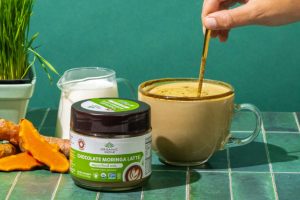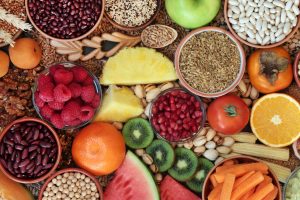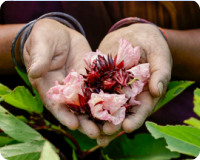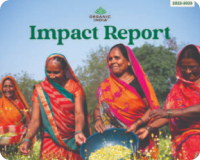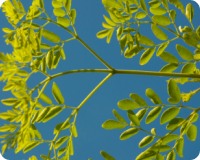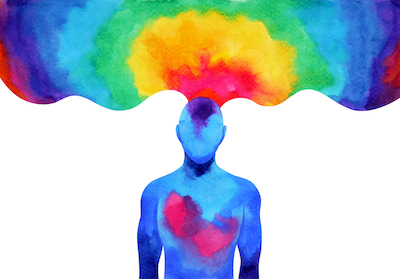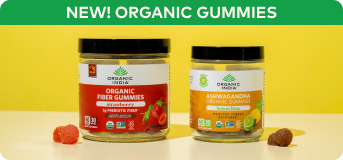

Section

Back
Note: This content is for informational purposes only. These statements have not been evaluated by the Food and Drug Administration. Any products mentioned are not intended to diagnose, treat, cure, or prevent any disease.
Keeping up with studies, navigating relationship dynamics, absorbing and organizing information from meetings, phone calls, and emails, traffic — the list of modern day stressors seems endless. Even thinking about stress can lead to overwhelm. To keep up with the pace, many have explored the use nootropics.
What are Nootropics?
According to Wikipedia, nootropics are drugs, supplements, and other substances that may improve cognitive function, particularly executive functions, memory, creativity, or motivation, in healthy individuals. It is believed that ancient Vedic societies in India relied on nootropics for mental fortitude.
Many think of nootropics as synthetic substances, and refer to them as “smart drugs,” or chemicals in the form of prescription drugs or over-the-counter supplements — in some cases, side effects are stated. There has been much controversy over false claims regarding nootropics, but even caffeine may fall under the umbrella of cognition-enhancing substances.
It is believed that Vedic societies relied nootropics for mental fortitude.
The nootropics of India came in the form of herbs believed to support healthy internal function. Because the Vedics held a holistic worldview, with deep appreciation for the plant kingdom, they believed that the body recognized each compound within an herb as having health promoting nutrients. The effectiveness and experience of an alleged sense of well-being some users report with herbal nootropics contributes to what seems to be their growing popularity.

Gotu Kola
Gotu Kola has been used in Ayurvedic medicine for thousands of years — the Balinese even refer to it as “the student herb.” It has been praised for supporting cognitive function and thinking processes in healthy individuals. Ancient people were believed to have used the herb to support memory, mental clarity, mental acuity, happiness, and an overall sense of well-being and joy. Gotu Kola may also support healthy brain function by providing protection from free radicals in cells.
Bacopa Monnieri
Bacopa Monnieri (BM) has has been referred to extensively in ancient Ayurvedic science texts. In a research article on the herb, Sebastian Aguiar and Thomas Borowski wrote, “Moderate administration of Bacopa monnieri appears to nourish rather than deplete neurons, an action compatible with 1400 years of Ayurvedic study. BM is believed to support cognitive performance, modulate the body’s stress response, and contribute antioxidants that protect the brain.
Ashwagandha
Ashwagandha is a beloved herb Ayurvedic medicine as it is believed to support a healthy stress response and mood. As a nootropic, Ashwagandha has been used to support the nervous system by possibly destroying free radicals.
Tulsi
As a member of the mint family, Tulsi (also known as Holy Basil), is said to have an aroma pleasant enough to reduce stress and clear brain fog. The name “Tulsi” roughly translates to the “incomparable one,” which points to how revered this herb is — not only for its medicinal qualities but also for its religious significance. First and foremost an adaptogen, Tulsi is believed to guard the body from all stress-related ailments while keeping the mind and body alert. Some research may indicate that Tulsi’s nootropic traits could work in supporting healthy cognitive function.
Shankpushpi
Classified as a medhya rasana (or a “brain tonic”) in Ayurvedic medicine, Shankpushpi is one of the most highly regarded Ayurvedic nootropics. Practitioners believe that it has the ability to boost memory and sharpen intellect, and may offer protection from a number of diseases including those of the central nervous system.
An Indian team of scientists reported that Shankpushpi beneficially affects the central nervous system, and may ward off depression and anxiety as well as improve motor function. It’s also believed that Shankpushpi regulates the body’s production of stress hormones, thereby calming the nerves.
Ayurvedic physician Jayarajan Kodikannath said, “Above all, we all are the parts of nature. We are created by nature, nurtured by nature, and taken by nature. We are coming from nature and we are going back to nature. Every vital breath, consciousness, and an individual soul are given by nature. An individual life and nature are the same. If this principle is clear then how Ayurveda works is also clear. For human body, mind, and spirit, all the supplementation and solutions are available in nature.”
Doubtlessly, the ancient healers of India were inspired by knowledge that was not limited to their world. After so many millennia, we are still uncovering the power and healing potential of nature’s plants in the form of herbs and foods. As consciousness itself continues to unfold, so too does the wisdom of Ayurveda, through the plant kingdom, with herbs that harmonize with human physiology and biochemistry. We may well wonder whether it is the richness of Ayurveda that made India one of the most advanced civilizations in the ancient world.
References:
Asian Pacific Journal of Tropical Biomedicine: “An update on the Ayurvedic Herb Convolvulus pluricaulis Choisy”
https://www.ncbi.nlm.nih.gov/pmc/articles/PMC3868798/
Nootropics Expert: Tulsi
https://nootropicsexpert.com/holy-basil-tulsi/
Alternative Medicine Review: Scientific Basis for the Therapeutic Use of Withania somnifera (Ashwagandha): A Review
http://www.altmedrev.com/archive/publications/5/4/334.pdf
Journal of Ayurveda and Integrative Medicine: Tulsi: An Herb for All Seasons
https://www.ncbi.nlm.nih.gov/pmc/articles/PMC4296439/
Pharmacognosy Review: Nootropic Herbs in (Medhya Rasayana) Ayurveda: A Review.
https://www.ncbi.nlm.nih.gov/pmc/articles/PMC3459457/
Evidence-Based Complementary and Alternative Medicine:
Effectiveness of Gotu Kola Extract 750 mg and 1000 mg Compared with Folic Acid 3 mg in Improving Vascular Cognitive Impairment after Stroke.
https://www.ncbi.nlm.nih.gov/pmc/articles/PMC4908235/
Disclaimer: The content on the ORGANIC INDIA USA website not intended to provide diagnosis, treatment or medical advice. Content provided on this site for informational purposes only.
